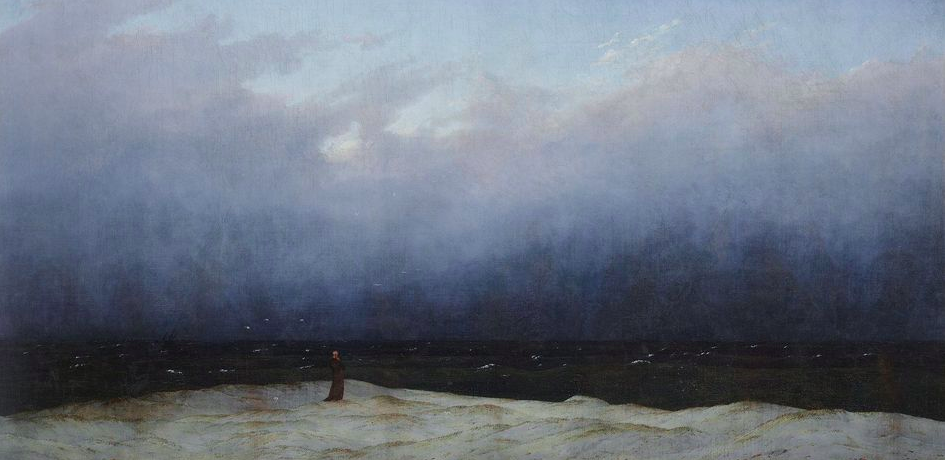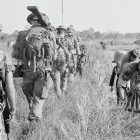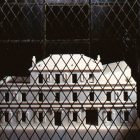Traversing Memory in The Heather Blazing

Colm Tóibín’s second novel, The Heather Blazing, published in 1992, follows the life of Eamon Redmond, an Irish judge, husband, and father. The book opens in 1984, when Redmond is around fifty—the present moment of the novel runs from 1984 to 1986—but flashes to memories from Redmond’s childhood and early adulthood. Through this juxtaposition, we begin to understand who Redmond is and the pressure of his past on the present. Perhaps most interestingly, however, we never see memories from his early middle-aged years—the years when he was raising two children and at the height of his career. As is so often the case, what is not on the page is as important as what is, and the novel’s structure seems to be designed so that we ultimately pay attention to the missing middle.
The novel is structured in three parts, with each part beginning in the summer as Redmond finishes up his work as a judge in Dublin and sets off for his summer home in Cush, in County Wexford. In the first part, set in 1984, there are six chapters: chapters 1, 3, and 5 take place during that summer, and chapters 2, 4, and 6 take place during Redmond’s childhood. Tóibín gracefully segues from present to past and back again.
In the first chapter, Redmond learns from his wife, Carmel, on the drive to Cush that their unwed daughter is pregnant; once in Cush, which we learn is a place that Redmond has known from childhood, they settle in. The second chapter begins: “Childhood. The voice teaching was still vivid in his mind, but he could remember nothing his father said in those early years. Nor could he remember walking from the primary school across to the secondary school except for the bare, creaking stairway to the classroom where his father taught.” We enter into Redmond’s memories of the past here largely through that which he can’t remember. As the chapter unfolds, we move from the general to the specific, focusing on a time when he was eight or nine, during the war. We learn about his life with his father, and slowly we begin to understand that it was just the two of them: his mother is not mentioned, and we learn, instead, about a Mrs. Doyle, who comes to look after him when his father is engaged.
Tóibín continually reminds us that what we are reading are memories, using sensual details to put us in the moment: “He remembered the Woodbines in Mrs. Doyle’s hand and the smoke in her voice, just as he remembered the long silences in the car, and the radio coming slowly alive with sound, and news of the war and Mrs. Doyle one evening telling him that his father was going to buy the Castle.” Right from the start, then, there are memories that cannot be accessed and a mother that is not mentioned. The missing bits are as important as the things that are remembered.
While the present-day narrative moves forward in time during that summer—Redmond going for walks, longing for better weather, visiting with friends and relatives—the chapters from his childhood move in the opposite direction. In the fourth chapter, Redmond is seven or eight, and in the sixth chapter he seems to be about six or seven. It is as though Redmond is reaching further back in his memories as the summer unfolds, as he comes face-to-face with people and objects that remind him of his past.
In the third chapter, when he and Carmel go to a friend’s house for dinner, he meets a Brother who had lived in town before he was born; he had taught alongside his father, and he had known his mother: “Eamon felt that if he lifted his glass he would not be able to hold it steady, that his hand would shake. Maybe, later, he would be able to talk to the Brother alone and ask him: what were they like? What was his mother like?” This is heartbreaking—there is clearly so much he doesn’t know about his parents and longs to find out, but he doesn’t ever work up the courage to ask. Instead, he thinks back again in chapter 4 to a Corpus Christi procession at the start of summer when he was younger still and then going to Cush alone, without his father. He remembers learning to play cards and waiting for his father’s arrival. They go swimming together, and his father puts him on his back to encourage him to go further out. He wraps his arms around his father’s neck and doesn’t want to let go.
When the next chapter begins, Redmond is still thinking about that moment: “The swim that day in the past, his hands around his father’s neck, the texture of his father’s wet skin and the thrill of the water were still with him.” In this way, Tóibín moves seamlessly and gradually between the past and the present, joining the two together. It is clear, for Redmond, that his thoughts of the past are often more important than the present: “Some of it more real and vivid and focused than anything that had happened since.” There’s such a disconnect between the public man (a judge, a husband, a father) and the private man, who is too anxious and repressed to ask what he wants to know.
Part One ends with a memory of two deaths, one quickly following the other: his grandfather and then his sickly uncle. Death happens again and again in this novel, and it is clear that these deaths experienced early in Redmond’s life stay with him and also echo the death of his mother, of which he has no memory. No one explains to the young boy what is happening nor can he bring himself to ask: “He did not know what they did to someone who was dead. Did they take all their clothes off? What did they wear when they were buried?” He tries to comfort his grandmother with a hug but she rebukes him: “‘No one is to touch me,’ she said. ‘No one is to come near me any more.’” Our heart breaks for the little boy and for the grown man, as well.
Part Two starts the following summer and works similarly to Part One. But here, the memories also move forward in time, and the past is more closely wedded to the present. The first memory is of his father having a stroke in church when Redmond is fourteen, after which he is sent to live with relatives in a rural town. The second memory is of the time spent living with these relatives and meeting a girl with whom he has his first sexual encounter. The third memory moves forward two years, to when he was sixteen and first met Carmel.
The father’s stroke is mirrored in the present by Carmel having a stroke in the middle chapter of Part Two, in almost the exact middle of the novel. It is clear, when Carmel is in the hospital, that it is almost too much for Redmond to bear, and Tóibín underscores this by reflecting on the father’s death, as he moves from the present to the past: “He was drawn back all the time to the scene in the Cathedral when he was young, his father standing up as though something had shot slowly through him.” It is the phrase “all the time” that is worth noticing—it is difficult for Redmond to stay in the present, to attend to Carmel and her needs.
Both his father, in the past, and Carmel, in the present, follow similar trajectories. They’re sent from Wexford to Dublin for care; they improve over time; they never quite return to themselves. He takes care of his father; he takes care of Carmel. Carmel tries to talk to him about the distance she feels between them, about the distance she feels between him and their children. Even in this moment, when Carmel is at her most vulnerable, Redmond refuses to engage and instead leaves her side, looking out the window, searching for the beam from the lighthouse: “He watched for it, it was much slower than a heartbeat or the ticking of a clock. It came in its own time, unfolding its light clear and full against the darkness which was everywhere outside.”
Part Three begins at the start of the following summer, and the first two sentences of the first chapter exactly replicate the first three lines of Part One: “Eamon Redmond stood at the window looking down at the river which was deep brown after days of rain. He watched the colour, the mixture of muds and water, and the small currents and pockets of movement within the flow.” Nothing has changed and yet everything has changed. We learn that, once again, he is to drive down to Cush for the summer holidays, but this time he is driving alone. We learn about the case he is working on—just as we have learned about the cases during the prior two summers—and it is not until almost ten pages into the chapter that we learn what we have suspected: Carmel died during the past winter. Redmond is alone.
There are only five chapters in Part Three: three in the present moment and only two from the past. By the end, the balance has shifted from the past to the present. The first memory is of Redmond when he is a young judge, dating Carmel, and his father dies. The second is when Carmel is pregnant with their first child, and they meet his relatives for dinner. The first memory ties together his father’s death with Carmel’s; the second contains an earlier version of the conversation that Carmel was trying to have with him at the end of Part Two. Here she tells him that she feels distant from him and although he tries not to respond, she pushes hard. Finally, he breaks his façade and confesses to her: “I don’t believe anyone has ever wanted me.” We see them talking for hours after that, as he tells her much about his past and what he feels.
In the final chapter, which follows that memory, Redmond is still in Cush, and both of his children come to check up on him. He doesn’t particularly want them there and yet he does—he forms a connection with his grandson. There is a way in which the memory of the chapter before—when he tells Carmel about his childhood—gives him the freedom to open his heart, if only a little. Those missing years that we never learn about, the twenty-odd years that his children have been in his life and largely ignored, are gone forever. His relationship with his children is tenuous and shaky. His wife is dead. But he has a chance, with his grandson, to forge something new. The book ends with Redmond in the ocean, holding his grandson, the image irrevocably linked to his memory of holding his father in the same way, in the same spot. Tóibín leaves us with that, with just the tiniest bit of hope.



